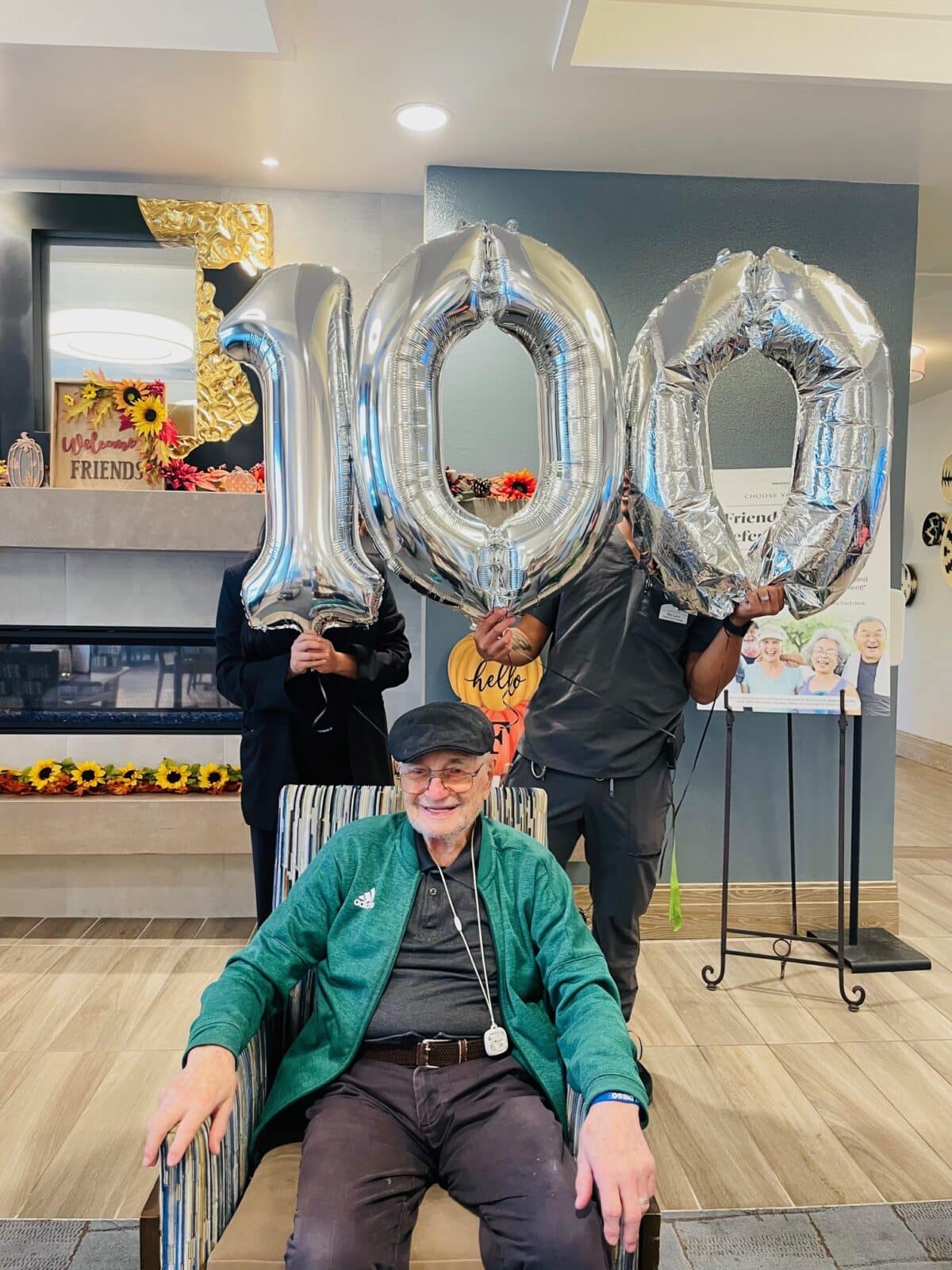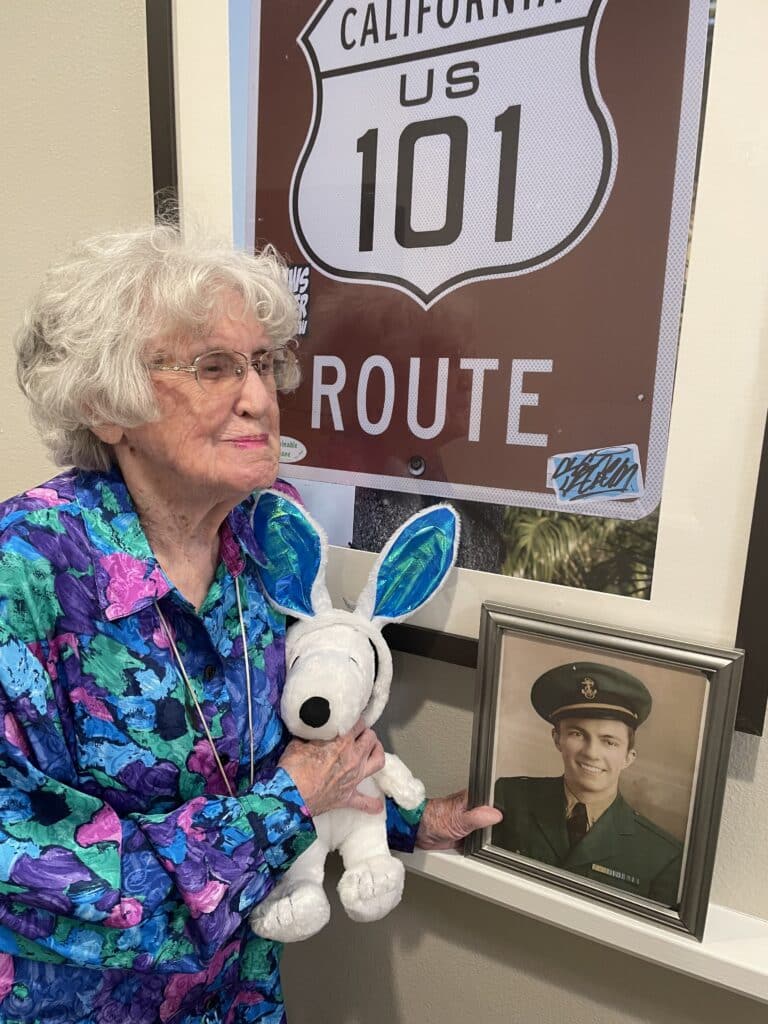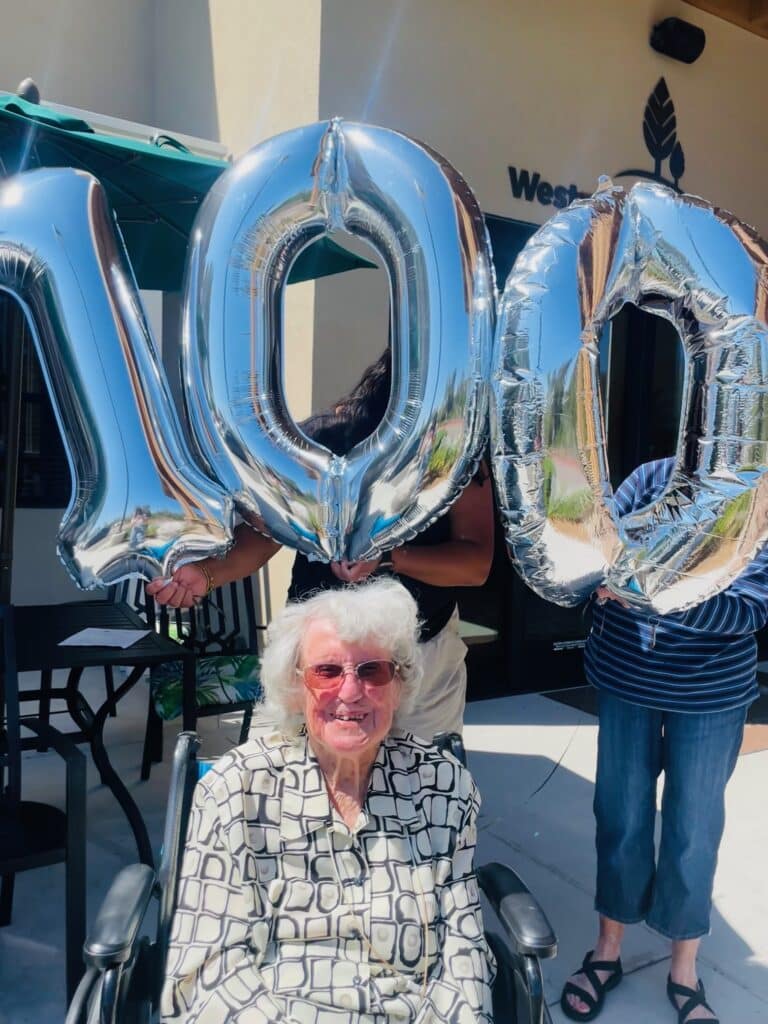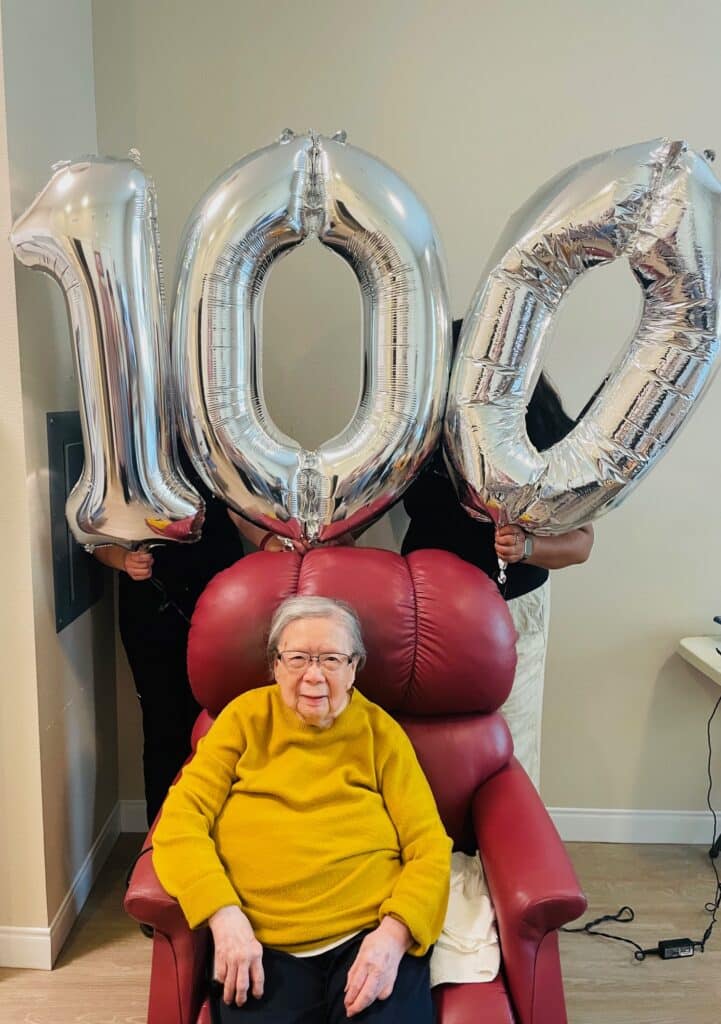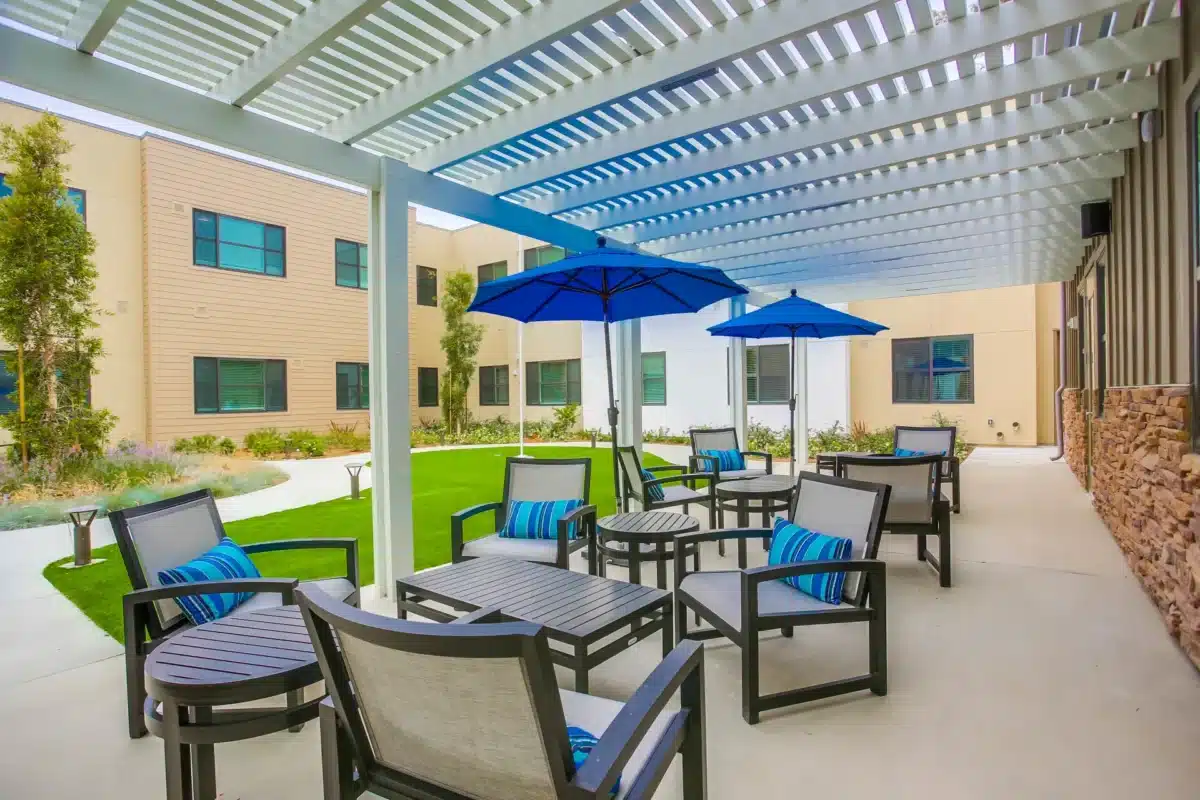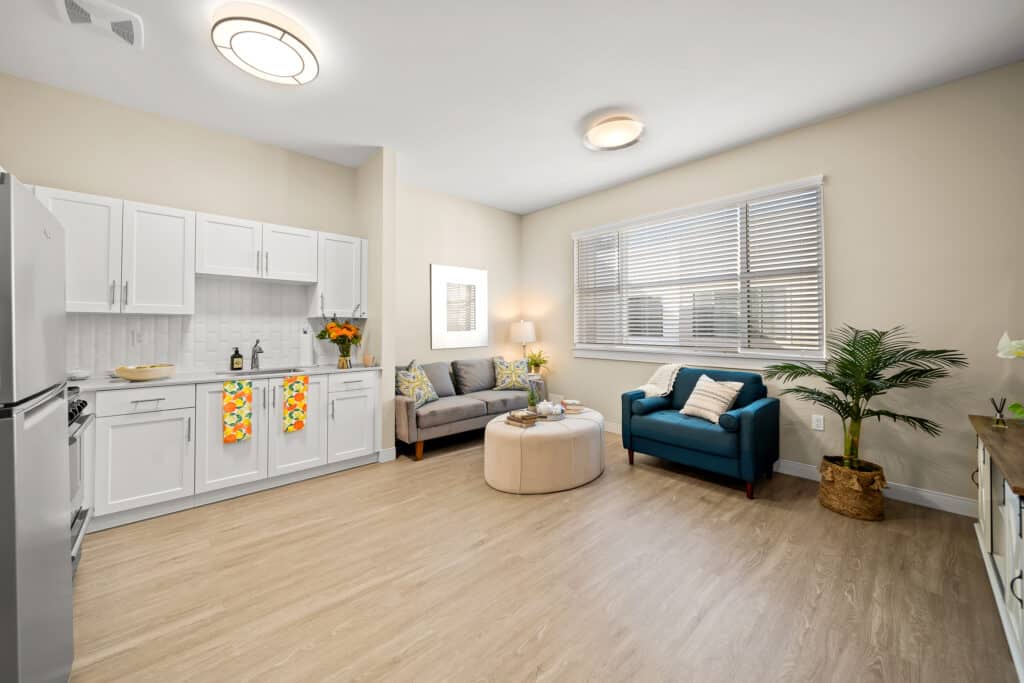What Vitamin Stops Age-Related Muscle Loss in the Elderly?
Maintaining muscle strength is essential for independent and healthy aging. But many adults unknowingly face a gradual loss of strength and vitality as the years go by. So, what vitamin stops age-related muscle loss? The answer lies in a key nutrient that supports muscle integrity, mobility, and overall wellness—vitamin D.
In this blog, we explore the role of vitamin D in preventing age-related muscle loss, the signs and causes of muscle decline, and proactive strategies for preserving your strength. If you’re concerned about the sudden loss of muscle mass or noticing muscle loss in your legs and buttocks, this guide is for you.
For personalized wellness solutions, visit Westmont of Encinitas and discover how we support healthier aging.
Understanding Vitamin D’s Role in Preventing Muscle Loss
Vitamin D plays a critical role in muscle maintenance and function. It supports muscle protein synthesis and helps regulate calcium and phosphate, which are essential for muscle contraction. A deficiency in vitamin D often leads to signs of losing muscle mass, including weakness and fatigue.
Older adults are especially vulnerable to low vitamin D levels due to reduced sun exposure, dietary changes, or absorption issues. Without enough vitamin D, the muscle loss with age chart accelerates, leading to a decline in mobility, independence, and quality of life.
Explore more strategies to maintain strength with senior fitness workouts designed for aging adults.
Best Natural Sources of Vitamin D
Although supplements are widely used, it’s important to know natural ways to get your daily dose of vitamin D:
- Sunlight – The body naturally synthesizes vitamin D when exposed to sunlight. Aim for 10–30 minutes a few times per week.
- Fatty fish – Salmon, tuna, and mackerel are excellent dietary sources.
- Fortified foods – Milk, cereals, and orange juice often contain added vitamin D.
- Egg yolks and cheese – These foods provide small yet valuable amounts of vitamin D.
For seniors in assisted living, ensuring a balanced diet with these sources can help prevent vitamin deficiencies and related muscle loss.
Spotting the Signs of Muscle Loss
Noticing changes in your physical strength? These are common signs of losing muscle mass:
- Trouble lifting everyday objects
- Feeling tired after minimal activity
- Unintended weight loss
- Poor balance or increased falls
- Muscle loss in legs and buttocks, leading to difficulty standing or walking
When these symptoms appear, it’s time to take action. Integrate senior leg exercises into your routine to regain lower body strength and function.
Muscle Loss With Age: Chart and Timeline
Muscle loss, or sarcopenia, is a natural part of aging, but it can be managed. Here’s a basic muscle loss with age chart for reference:
| Age Range | Muscle Mass Loss (%) | Risk Level |
| 30–40 | 3–5% (slow decline) | Low |
| 40–50 | 5–10% | Moderate |
| 50–60 | 10–15% | Moderate |
| 60–70 | 15–20% | High |
| 70+ | 20–30% or more | Very High |
Understanding this decline helps you prepare in advance. Start early with muscle-strengthening habits to slow this progression.
What Causes Sudden Muscle Loss?
Experiencing a sudden loss of muscle mass is often more than just aging—it may signal an underlying health issue. Key contributors include:
- Vitamin D deficiency – Weakens muscles and increases the risk of falls.
- Chronic illness – Diabetes, kidney disease, and cancer can accelerate muscle breakdown.
- Poor nutrition – Lack of protein, calories, and key vitamins impacts muscle repair.
- Inactivity – A sedentary lifestyle worsens age-related muscle loss.
Regularly monitor vitamin D levels and discuss changes with your healthcare provider.
For more insights, check out this helpful resource from the Cleveland Clinic on vitamin D deficiency.
Nutrition’s Impact on Muscle Health
When addressing muscle loss in legs and buttocks, nutrition plays a central role. Focus on:
- Lean proteins – Such as chicken, legumes, and tofu
- Vitamin D-rich foods – Like mushrooms and fortified milk
- Omega-3 fatty acids – From walnuts and flaxseeds, which reduce inflammation
- Hydration – Water supports metabolic function and nutrient absorption
These choices support muscle recovery and growth while reducing the effects of aging.

Strength Training and Muscle Retention
Combining strength training with good nutrition is one of the best ways to counter muscle loss. Here’s how resistance training can help:
- Enhances muscle fiber density
- Improves balance and mobility
- Boosts metabolism and bone health
Start with light resistance bands or bodyweight exercises. Focus on consistency and proper form. For best results, aim for two to three sessions per week.
Track your strength progress with a simple workout journal to stay motivated.
How to Monitor and Supplement Vitamin D
To determine what vitamin stops age-related muscle loss, regular testing is essential. Blood tests can reveal whether your vitamin D levels are optimal (usually 30 ng/mL or higher).
When to Supplement
- If you’re deficient, Supplement with 600–800 IU of vitamin D daily (or as prescribed).
- If you live in low-sunlight areas, consider a higher daily intake.
- If you’re 65 or older, you may need more due to reduced skin synthesis.
Consult your physician before starting any supplement routine. Read this Harvard Health article to better understand dosage needs.
Lifestyle Tips to Preserve Muscle Mass
In addition to diet and exercise, here are more tips to manage muscle loss as you age:
- Stay socially active – Isolation can reduce physical activity levels
- Get outdoors – Combining vitamin D absorption and movement
- Stretch regularly – Maintains mobility and prevents injury
- Track your weight – Unexplained loss may signal muscle deterioration
It’s also important to educate caregivers and loved ones on how to recognize early signs of decline, especially in seniors with limited mobility.
Reclaiming Strength and Living Independently
By understanding what vitamin stops age-related muscle loss, you’re already taking a powerful first step toward preserving your strength and independence.
At Westmont of Encinitas, we emphasize proactive wellness, fitness, and nutrition programs that support seniors through every stage of aging. Call us at 760-452-6037 or schedule a tour to explore how we can help you thrive.
Stay Strong: Your Future Depends On It
Muscle loss doesn’t have to define your aging journey. With the right knowledge, consistent action, and smart supplementation, you can combat muscle loss in legs and buttocks, spot early signs of losing muscle mass, and prevent the sudden loss of muscle mass.
Make vitamin D your ally, track your progress, and surround yourself with wellness-focused support. Prioritize movement, mindful eating, and connection—because aging should never mean losing your strength.
Ready to reclaim your vitality? Let Westmont of Encinitas guide you every step of the way.
Frequently Asked Questions
What is the best supplement for muscle loss?
The best supplement for muscle loss often includes protein powders like whey or plant-based options, which help rebuild and maintain muscle tissue. Creatine is also effective, especially in older adults, as it supports energy production and muscle strength. Vitamin D and omega-3 fatty acids have been shown to aid in muscle health and reduce inflammation. Always consult with a healthcare provider before starting any supplement, especially for older adults with medical conditions.
How to prevent muscle loss in old age?
Preventing muscle loss in old age involves a mix of strength training exercises, adequate protein intake, and healthy lifestyle habits. Resistance training at least 2-3 times per week helps maintain muscle mass and strength. A diet rich in lean proteins, vitamin D, and omega-3s also supports muscle preservation. Staying physically active and getting regular health checkups are essential to detect and address deficiencies early.
Can a 70-year-old regain muscle mass?
Yes, a 70-year-old can regain muscle mass through a combination of resistance training and proper nutrition. Studies show that seniors respond well to strength training, even if they’ve never exercised before. Eating enough high-quality protein and possibly supplementing with creatine or vitamin D can further support muscle recovery. It’s important to consult a doctor or physical therapist to design a safe, age-appropriate exercise plan.
Does vitamin B12 limit muscle loss?
Vitamin B12 plays an important role in nerve function and energy production, both of which are crucial for maintaining muscle health. While it may not directly build muscle, a deficiency in B12 can lead to muscle weakness, fatigue, and even muscle wasting in severe cases. Ensuring adequate B12 intake—either through diet or supplements—can help prevent these issues. Older adults are more prone to B12 deficiency, so regular monitoring is recommended.






